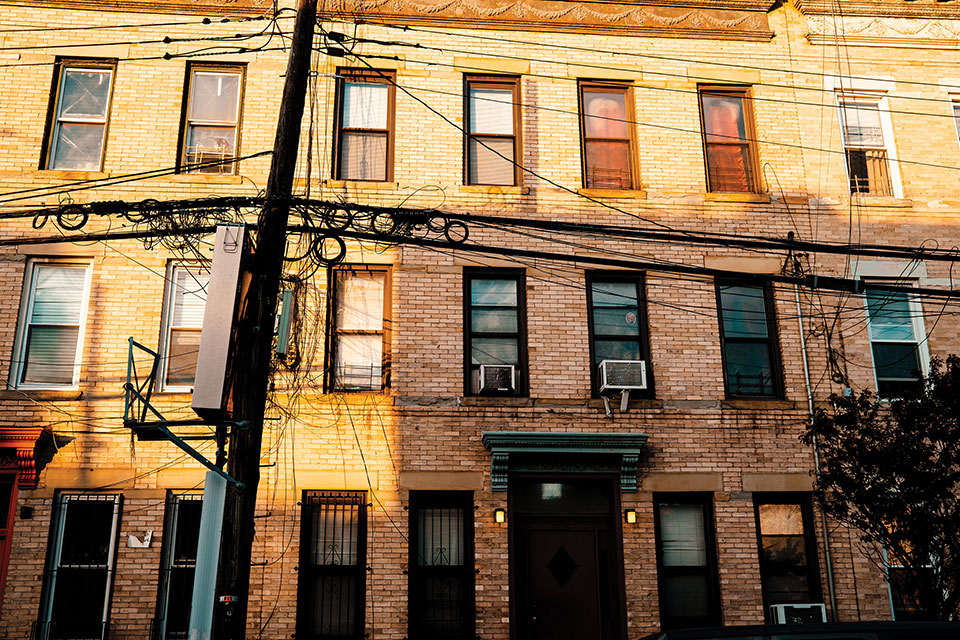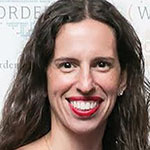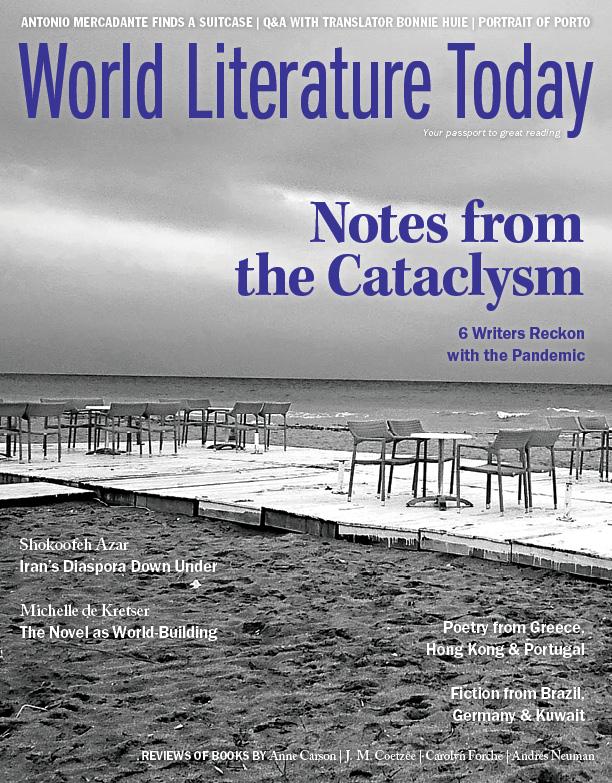Mapping My Mother

In isolation, a writer connects her mother’s attempt to protect her from “never-being-able-to-leave-Cuba-itis” to her own desire to protect her children amid the Covid-19 pandemic.
My mother spent Mother’s Day this year in a nursing home in Miami, physically isolated from everyone she has ever known, mentally isolated because of her dementia. As I process the heartaches and losses of this season, her absence is the one I’ve carried the longest and the one that seems to go on and on. The depth is unfathomable; insondable, the word comes to me in Spanish. I fear falling into it and never again coming up for air.
In trying not to think about my mother now, I recall her as she was during my childhood. I remember, specifically, the way she shut down when she returned from her only trip back to her native Cuba, in 1979, thirteen years after she immigrated to the US. She was irritable and reluctant to talk about the island. This was my first encounter with trauma, though I did not have the vocabulary for it then, this immense grief of hers and her inability to reconcile herself to a country she found so visibly altered. I hungrily looked at the pictures she took during the trip, wanting to find in them the source of her sadness, but I didn’t have the context of the “before.” Born in exile, I have never known the Cuba of my mother’s “before,” and this contrast, it seemed, was what she found so perturbing.
I remember how I judged my mother years later when I grew curious about traveling to Cuba and she told me I had nothing to seek there. In fact, like so many others of her generation who fled Cuba and wanted to protect the children they were raising in exile, she forbade it to me. I deemed her controlling and even questioned aloud whether she longed for a past that may have never existed, because, when I was younger, I had such little firsthand experience with the alchemy of nostalgia.
I defied my mother and first traveled to Cuba under an elaborate lie in which I told her I was going to the rain forest in Central America, a place from which it would be difficult to call her or provide names of hotels where I could be reached. People have subsequently asked if I felt bad about lying, but I actually thought myself better than her for it at the time. I didn’t understand that it wasn’t a competition. That our lives, while bound in the ways those of mothers and daughters so often are, would never have followed the same script. My mother left Cuba at the age of twenty-three; I first arrived there at that same age.
When I returned from my first trip to Havana, I brought my mother a picture I took of the house where she lived the earliest years of her life. That house on the fabled corner of Neptuno and Campanario streets was where my grandmother lived with her own mother and siblings before meeting and marrying my grandfather. That was where the balcony stood where my grandmother waited every day to flirt with my grandfather when he walked down the street, before they were even novios. However, by the time I arrived in 1999, the balcony was gone and the picture I took of the crumbling building made my mother cry. Where my pre-Cuba self had once imagined the corner as a bell tower (campanario in Spanish) rising from the Caribbean waters ruled over by Neptune, the impression that remained with me after being there was that of a bell tower submerged beneath my mother’s salty tears.
I altered a certain fabric in my mother’s own life by traveling to Cuba, forcing her to confront some of her worst fears and anxieties. Once she knew that I had been there, my mother confided in me that her worst fear was going back to Cuba and getting stuck there.
My mother couldn’t understand why I would take such a risk, and what I didn’t understand was that this was a symptom of collective trauma.
She repeated this again and again every time I went, fearing I, too, suffered the vulnerability of “never-being-able-to-leave-Cuba-itis.” She couldn’t understand why I would take such a risk, and what I didn’t understand was that this was a symptom of collective trauma, the way she tried to engage my aunt, my grandmother, her exiled friends, in the crusade against my traveling to Cuba. The way I now yell at strangers through my phone screen to stay the hell home or struggle to make my children understand why their world has been put on hold. Because I am terrified of the world out there hurting them.
My mind spins back to those days in 1979 because I recognize my current self in my mother as she was then. Those pictures from Havana that I looked at so many times contained the faces of so many people my mother left behind. Her grief came not just from a longing for a place or a time in her youth. It was also based on a kind of survivor’s guilt because she’d gotten out when others remained—her worst fear—stuck there. She loved them as intensely as she feared being them. With all that energy she poured into phone calls and letters back to Cuba, into Marazul care packages of basic goods and money that could legally be sent to the island under the strict regulations of the US embargo, was she assuaging her survivor’s guilt in addition to feeding a basic human need to connect? Is that what I am doing now by donating to the Go-Fund-Me’s to support the surviving members of families devastated by Covid-19 in my own neighborhood and by cheering on hospital workers? I sit here and hope that the fever I had for so many days straight in April, the one my doctor diagnosed via teleconference as “likely Covid-19” given that my home is four blocks from Elmhurst Hospital, won’t return and simultaneously think that such a mild symptom is a small thing to bear when others are dying.
What I fear is this: walking out onto the streets of New York and not seeing anything I recognize. I fear my children walking out and getting lost there on the streets, unable to return home to me.
I do not know what my mother’s worst fears are now. She is lost somewhere inside her head, and no map or app can help me reach her. But I understand her better now as I bear the weight of this moment. What I fear is this: walking out onto the streets of New York and not seeing anything I recognize. I fear my children walking out and getting lost there on the streets, unable to return home to me.
Queens, New York











